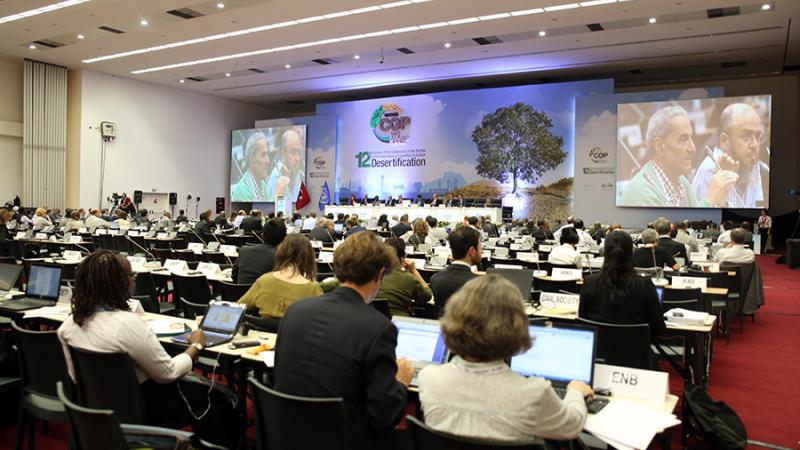Need for action in dryland areas to combat climate change

As global leaders meet in Paris early December for the United Nations Conference on Climate Change and the twenty-first session of the Conference of the Parties (COP21), dryland areas, which make up 41% of the earth’s surface and face worsening water scarcity and rising temperatures, remain pivotal in the fight against the impacts of climate change. A balanced ecosystem approach is essential for sustainably addressing desertification, land degradation and drought. Science-based policy frameworks are needed to bridge the existing policy gaps and the complex challenges in drylands of food security, sustainable agriculture, water availability and rangeland production.
These key priorities were also deliberated upon at the twelfth session of the Conference of the Parties (COP12) of the United Nations Convention to Combat Desertification (UNCCD), held at Ankara, Turkey, 12-23 October 2015.
The UNCCD sees opportunities to develop closer relations with the CGIAR through potential activities that would include regional training and research on Land Degradation Neutrality (LDN) efforts in action sites. Dr. Mahmoud Solh, ICARDA’s Director General, discussed collaborative linkages between the CGIAR and UNCCD together with Dr. Dennis Garrity, UNCCD Ambassador, and Dr. Victor Castillo from the Science & Technology Unit of UNCCD. Dr. Castillo explained that science will be fed into the UNCCD via calls and commissioned work from the new Science-Policy Interface, given the CGIAR’s record in land-based research and referenced action sites globally.
From CGIAR Research Program on Dryland Systems (CRP-DS), Dr. Richard Thomas, Director, and Tana Lala-Pritchard, Communication Program Coordinator, participated in the UNCCD COP12 and various side events organized by the CRP-DS and The Economics of Land Degradation (ELD) initiative. Dr. Thomas, who is the Scientific Coordinator of this global initiative, highlighted the findings of ELD’s recent report, ‘The Value of Land’, which estimates the value of ecosystem services worldwide forfeited due to land degradation at a staggering US $6.3 trillion to $10.6 trillion annually, or the equivalent of 10-17% of global GDP.
This participation has led to various opportunities for future collaborations for CRP-DS, ICARDA and the ELD, including partnering with IUCN, among others, on land degradation neutrality, especially via rangelands that offer huge potential for climate change mitigation. It was also discussed how the ELD initiative can contribute to the UNCCD’s efforts including the proposed private sector investment fund. Currently, the UNCCD is initiating studies in 15 countries with a view of expansion to 60-70 countries with support from the Global Environment Facility (GEF) funding amongst others.
